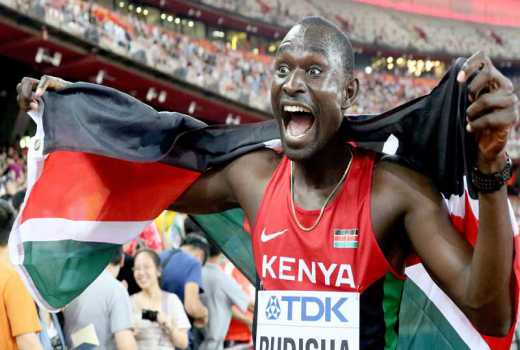×
The Standard e-Paper
Smart Minds Choose Us

The North Rift region –often billed as the Mecca of world athletics –has seen Eldoret town glow with marathon dollars thanks to the maxim 'train hard, win easy.'
Two adjectives –sacrifice and discipline –define the athletic atmosphere in Iten, Eldoret and Kapsabet towns.
They say athletes are born but top notch athletes are made. And Eliud Kipchoge, who is the world's fastest marathoner of all, has subscribed to this athletics manual, which has seen most Kenyans hit the global stage.